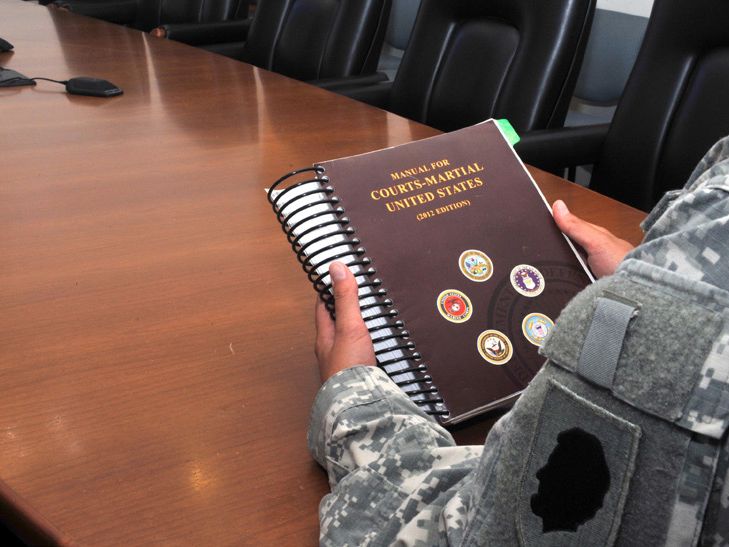
In United States v. Roberts, 69 M.J. 23 (C.A.A.F. 2010) the issue was whether the military judge erred in excluding evidence of relationship such that it violated Robert’s constitutional confrontation rights.
Before a military judge sitting as a general court-martial, Staff Sergeant Roberts pled guilty and was convicted of one specification of assault consummated by a battery. He was also convicted, contrary to his pleas, of another assault, rape, and communicating a threat. The Air Force Court of Criminal Appeals affirmed.
The defense filed notice pursuant to M.R.E. 412 requesting that the judge allow the defense to introduce evidence that ER was having sexual relationship with FL. The evidence included: 1) the testimony of a witness, DT, about an incident that led DT to believe that ER and FL had engaged in sexual intercourse; 2) the testimony of LH that ER had said things to LH that LH interpreted to mean that ER and FL had a sexual relationship; and 3) evidence that ER and FL went on a weekend trip to Florida together while Roberts was deployed (a fact that the government conceded that ER admitted to). The defense offered this evidence for the purpose of attacking ER’s credibility and to demonstrate her bias and motive to lie. d) The judge analyzed the evidence presented by the defense at the motions hearing and determined that the evidence from DT and LH was not credible. The judge further found that there was “no evidence” that ER and FL took a trip to Florida together. At trial, the defense asked ER on cross-examination if ER had called FL while she was in the park after the alleged rape. The judge sustained the trial counsel’s relevancy objection.
The CAAF concluded that the judge’s exclusion of evidence of the alleged sexual relationship did not violate Robert’s constitutional right to confrontation, but the judge’s limitation of the defense cross-examination of ER generally regarding her relationship with FL and specifically regarding her phone conversation with FL in the park did violate Robert’s confrontation rights. This error, however, was harmless beyond a reasonable doubt.
Defending Service Members Globally
Wherever Duty Calls, Our Defense Follows




